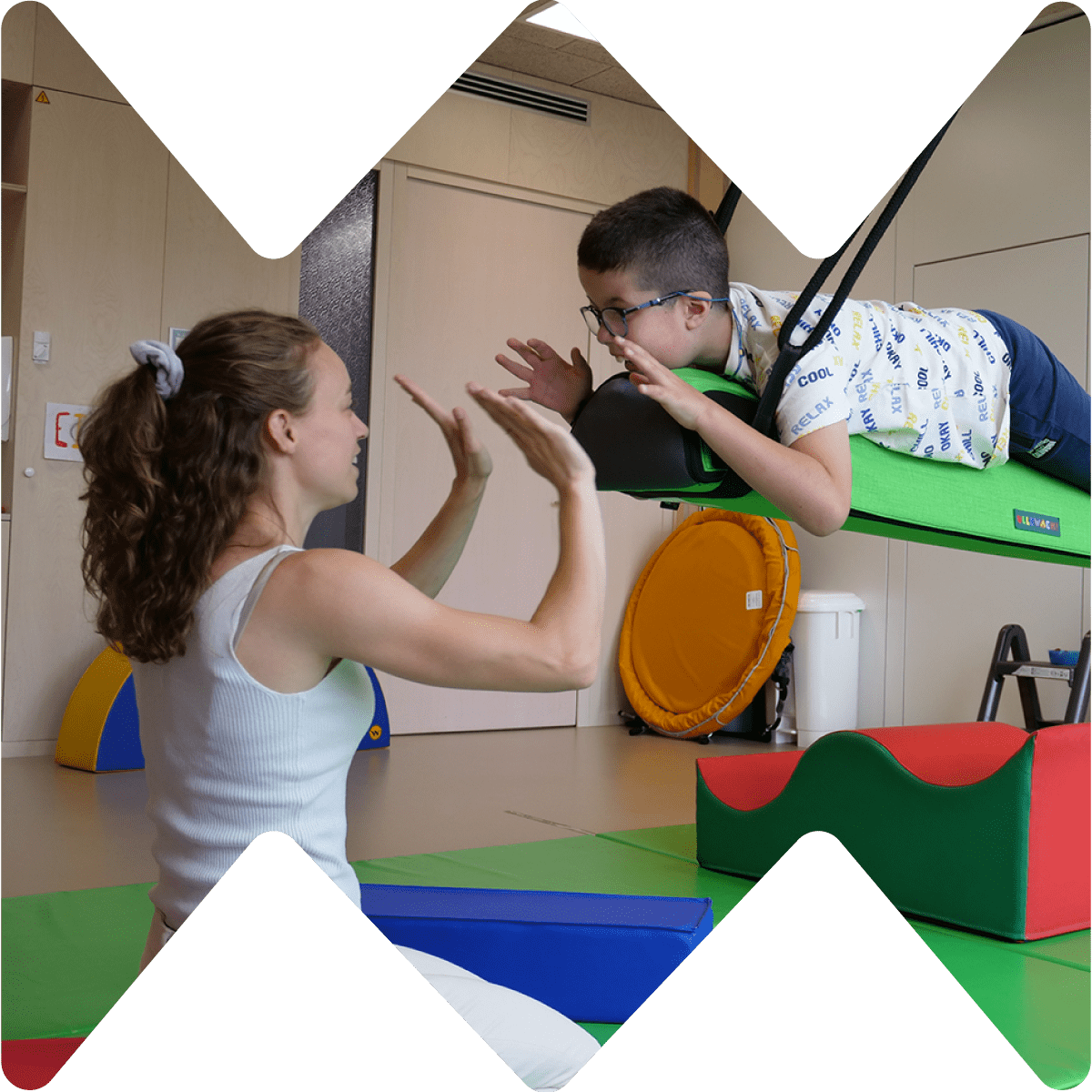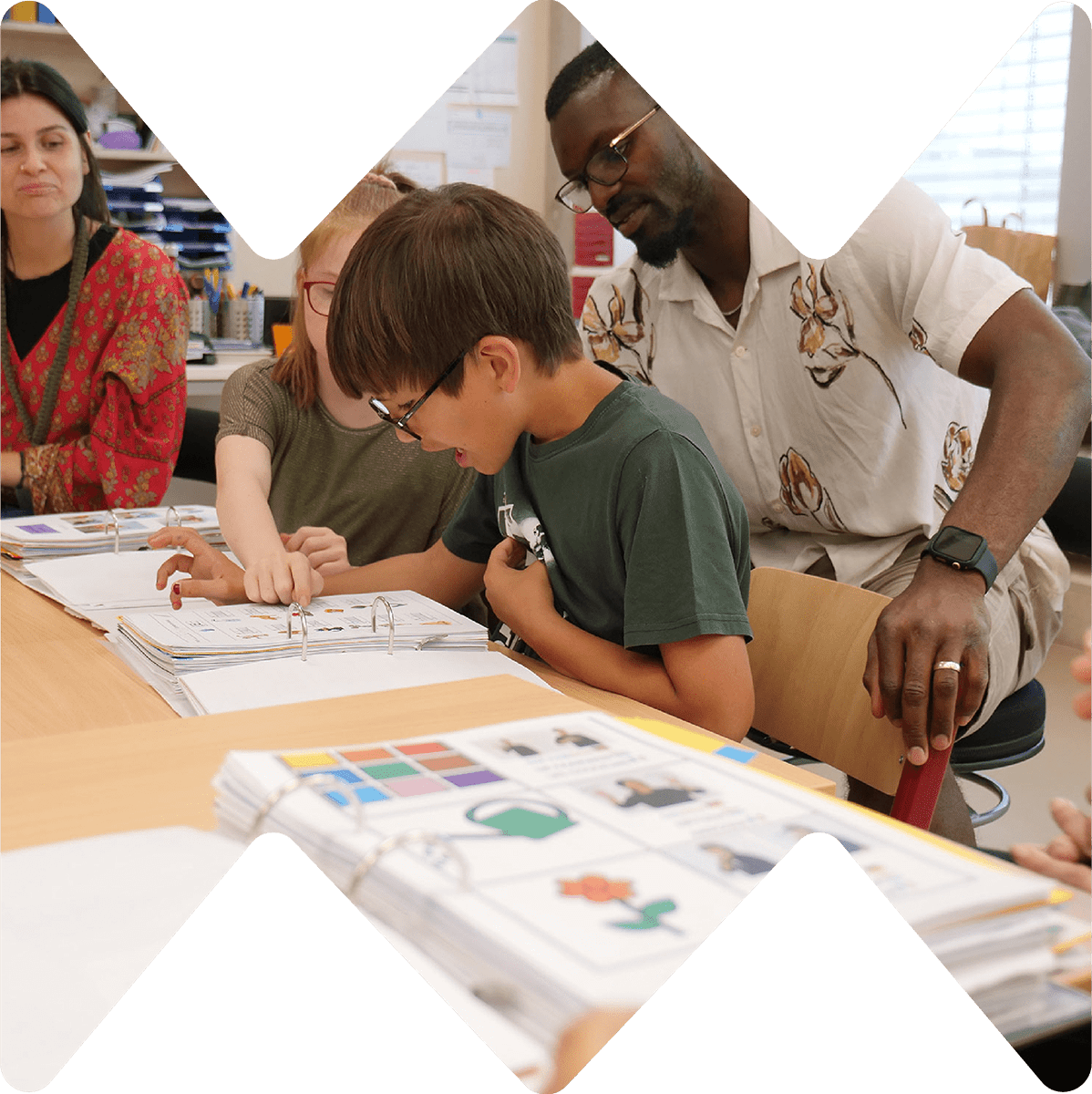For families
For every student in specialized education, collaboration with families is implemented through various forms of meetings. These include an informational meeting at the beginning of the school year, the Schuliches Standortgespräch (SSG), the Elterncafé with the presentation of the portfolio, and school celebrations. The CDI offers a wide range of support and assistance to all families involved throughout their child's educational journey.
Specialised diagnostics
The Commission national d’inclusion (CNI) can ask the CDI to carry out a specialist diagnosis.
The specialised diagnosis, carried out under the responsibility of the CDI, identifies the abilities and strengths of the child or adolescent.
It includes a description of the recommended measures to be implemented.
All interventions within the framework of the specialized diagnosis follow standardized procedures and criteria developed by the CDI.
Throughout the process, families are supported by a designated person who collaborates with all the professionals involved.
After the completion of the specialized diagnosis, the CNI verifies the compliance of the documentation and decides on the next steps for the request, proposing the measures to be initiated. The implementation of these measures requires the agreement of the parents or the young adult.

Therapy and rehabilitation
Every day, psychomotor therapists, occupational therapists, and speech therapists work together to:
- Identify the needs of children/adolescents during the specialized diagnosis to define priorities of intervention in collaboration with those involved.
- Take charge of referred children/youth and apply rehabilitation techniques tailored to each individual’s needs.
- Proactively raise awareness among formal and non-formal education stakeholders about the needs of intellectually challenged children/youth.
- Provide advice to teachers and educational and psycho-social staff when dealing with children/youth facing difficulties.
- Participate in national or European commissions, projects, or programs, contribute to the development of specific materials, and provide supervision and training for interns.
Based on the specific educational needs of children and youth and the rehabilitation assessment, rehabilitators may suggest different types of interventions:
- Individual intervention
- Group intervention
- Classroom-level teaching intervention
All rehabilitative interventions are carried out in close collaboration with psycho-pedagogical teams.
The motor and communication skills of the child and youth are regularly assessed or reassessed to closely monitor their development, adjust intervention objectives, and, if necessary, determine the end of the intervention.
Advice and support for families
Social workers and qualified nurses are committed to the following levels of involvement:
- Take charge of developing the Projet d’accueil individualisé (PAI).
- Promote and implement health policies for students: general health actions, prevention, etc.
- Schedule, organize, and accompany general school medical visits, dental medical visits, and specific medical visits.
- Ensure social follow-up for children, youth, and their families (e.g., in case of family difficulties, financial issues, administrative problems, health issues, violence, school absenteeism, discrimination, conflicts, etc.).
- Advise parents on specialized care and other interventions that their child may benefit from outside the school setting.
- Manage requests for financial assistance (long-term care insurance, double family allowance, etc.).
Professional training for youth
Education for Students
Based on a diagnosis specialized in Special Needs (Förderdiagnostik), pedagogical teams establish a Förderplanung (support planning) to define the needs of the students, ensuring maximum participation in education. In close collaboration with parents, they identify areas (Förderbereiche) and set goals in the Individualized Educational Plan. This individualized educational plan undergoes continuous reassessments. Each student creates a portfolio documenting tasks completed and reflecting the skills used.
Specialized support
We offer a range of care options for pupils aged 3 to 18:
- Interventions spécialisées ambulatoires (ISA) at schools and colleges,
- Specialised schooling in a class at the CDI or simultaneously and additionally in a class at a school or high school and within the CDI,
- Specialised rehabilitation care in collaboration with the teaching team (“Unterrichtsimmanente Förderung”).
Special needs education is divided into several cycles:
- Cycles 1 to 4, for children in the primary school (6-12 years),
- Cycles 5 and 6, for adolescents of secondary school (13-16 years),
- The professional and occupational cycle for adolescents aged 16-18.

Professional training for youth
At the end of compulsory education, students have the option to continue their education and enter the professional and occupational cycle.
This training aims to help young individuals prepare for active and/or professional life. During this cycle, they acquire assets such as life skills, which facilitate participation in social life, and work skills (cross-functional professional skills) that are essential for integration into active life.
